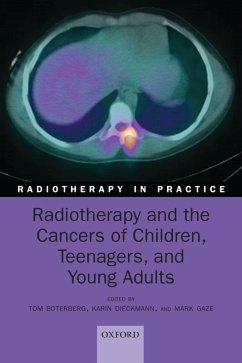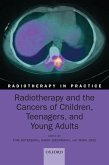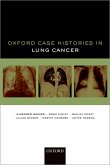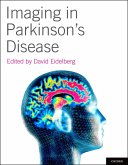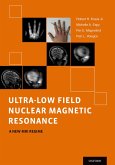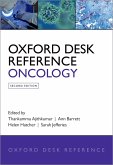This new volume in the Radiotherapy in Practice series provides a comprehensive and evidence-based guide to radiotherapy in the management of children and young people with cancer. It explains the roles of the various modalities of treatment available, including image-guided and intensity modulated radiotherapy, brachytherapy, proton beam therapy, and molecular radiotherapy, and aids selection of the most appropriate technique in different situations. Each cancer type in children is explored, including diagnostic investigations, risk stratification, multi-modality approaches to treatment, and decision making with regard to radiotherapy. Specific guidance is given for the planning and prescription of radiotherapy for infants, children, and teenagers. The authors also identify the need for specialist paediatric radiotherapy service provision, and the wider requirements for radiotherapy in children, including consent, immobilisation, anaesthesia, multi-professional team working, and play specialist support. With over 75 colour illustrations, case histories to demonstrate the various approaches, and a carefully selected guide to further reading on each topic, this practical volume will be a valuable resource for physicians and trainees in radiotherapy and clinical oncology, and to nurses, radiographers and other allied health professionals who come into contact with young patients receiving radiotherapy. ABOUT THE SERIES Radiotherapy remains the major non-surgical treatment modality for the management of malignant disease. It is based on the application of the principles of applied physics, radiobiology, and tumour biology to clinical practice. Each volume in the series takes the reader through the basic principles of the use of ionizing radiation and then develops this by individual sites. This series of practical handbooks is aimed at physicians both training and practising in radiotherapy, as well as medical physics, dosimetrists, radiographers, and senior nurses.
Dieser Download kann aus rechtlichen Gründen nur mit Rechnungsadresse in A, B, BG, CY, CZ, D, DK, EW, E, FIN, F, GR, HR, H, IRL, I, LT, L, LR, M, NL, PL, P, R, S, SLO, SK ausgeliefert werden.

